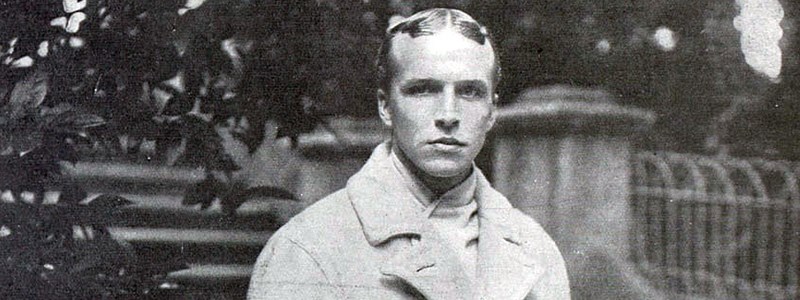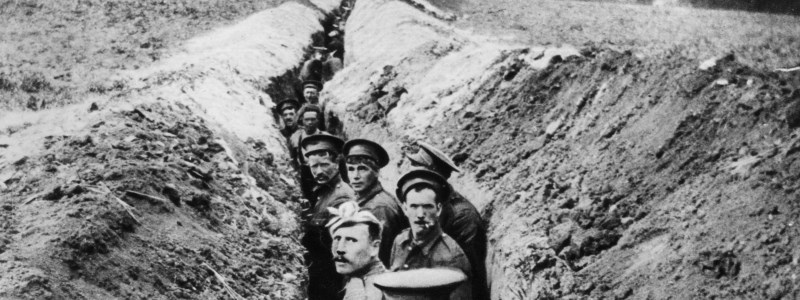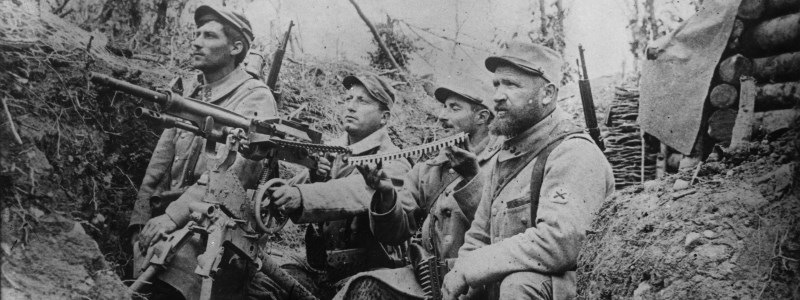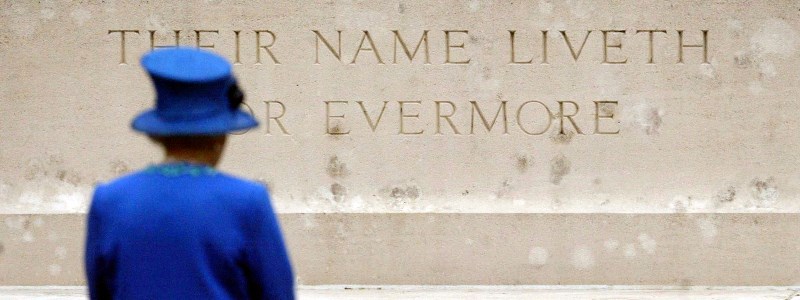
We will remember them: The British Olympian and Wimbledon finalist killed in WW1
• 5 MINUTE READ
Lest we forget. An Olympian and Wimbledon finalist, Private Kenneth Powell was one of around 750,000 Britons who died in combat in World War One.
The hugely talented athlete, who competed in two Olympic Games in the 110m hurdles, won the 1908 singles title at the Queen’s Club and reached the quarter-finals of the men’s singles at Wimbledon in 1913, having competed in the men’s doubles final in 1910.
One year after playing in a Grand Slam quarter-final, the 29-year-old was fighting in the trenches in France for the Allied Forces, serving as a private with the Honourable Artillery Company.
Described as ‘a delightful fellow,’ who ‘never said an unkind word; never did an unkind deed,’ we’re documenting what happened to Private Powell through a series of extracts from letters he sent from the frontline – which were donated by his family to the Imperial War Museum.
December 8, 1914. The British papers had reported that soldiers were receiving ‘hot baths and hot drinks’ after fighting in the trenches. Private Powell tells a different story.
"Instead of the imaginary “hot baths and hot drinks” I read of in the papers to be had after the trenches, we were marched off nine miles in wind and rain, without anything to eat or drink. We had to make our water bottles last three days, and I had very little left, but had enough to give two soldiers who were both in a bad way. It was a most awful march, as many of our men’s feet were so rheumatic after two days under water that they could only hobble, and kept falling out. One man dropped at my feet and we had to carry him to the transport wagon. Our officers worked very hard, however, and kept the men together, and only about a dozen were left behind. Our little lot had only one fall out. During the night a man shot himself dead owing to his sufferings being so great."

January 2, 1915. Looking back at Christmas while at war. After spending the night in an abandoned stable, Private Powell recalls what he found while staying in a deserted French village.
"The cold was very great, but we slept well, and woke on Christmas morning to find Father Christmas had filled our socks — with cold feet! Christmas Day was really a happy one, frosty and fine. In the morning we examined the village square, terribly destroyed, the chateau grounds, which included a fine hard court (so I did get into a tennis court, even this Christmas!) and a maze better than Hampton Court."
January 9, 1915. The struggles of life on the frontline. Private Powell describes his attempts to cope.
"Out of the last four days I have spent three days and nights in the firing line, only 50 to 100 yards from the Germans. The firing has been almost incessant night and day, and although we have had no sorties or attacks, our artillery have twice blown the German trenches to fragments. The noise is one of the most tiring parts of the whole work. The actual digging, etc., I find interesting, but it is very tiring with equipment and overcoat on. The sleep problem is very difficult, but I believe I owe part of my good health in not going to sleep, as the sleepers always wake feeling ill. For two nights I had one hour each, and made up with a few hours at intervals in the day. But, of course, one feels very tired after it is over."

February 14, 1915. Four days before he died, Private Powell paints a bleak picture of one soldier trying to care for his gravely injured brother.
"The enemy were very active on our left, and a lot of shelling went on near the close billets which are our headquarters. In the evening, instead of any sniping a friend and I were sent out as guides to a stretcher party to find a wounded man, of our platoon, who had been hit as his section was being relieved. We found him being tended by his brother near the firing line, and the stretcher party got him safely back to the Doctor. The wounded man was extraordinarily cheerful and made no complaint, although struck in the hip with the bullet lodged somewhere in the stomach — a serious case I am afraid. His brother was much more disturbed than he was, and we had difficulty in getting him along. It amazes me to see how much pain these poor fellows can stand without fainting."
February 18, 1915. The final letter Private Powell sent home. He was killed the same day this letter was written after being struck by a stray bullet near Ypres, Belgium.
"Two days ago we met a stretcher party quite exhausted who asked for help, so another man and I volunteered. On the stretcher was a recruit of the last draft, who had been apparently killed by the shock of a shell in his trench, though not hit by it. We had a very heavy job to get him back as the four stretcher men were very tired, and neither of us were exactly fresh. We had to cross a brook, which was flooded owing to the heavy rain, and the first two had to put down the stretcher to get out their side while we stood in the stream above the knee until they got a grip again. Eventually we got him to our now overworked doctor, and yesterday I hear he came to a little for a moment, but finally died. I don’t think I have ever had a harder night’s work. Yesterday was quiet except that a close friend, poor H, was killed by a stray bullet in the neck while on sentry duty by our headquarters’ door. Frightfully bad luck, but it shows you how near the firing line these close barracks are…"

Private Powell died at the age of 29 and is buried in the Commonwealth War Graves section of the churchyard in Loker, Belgium.





